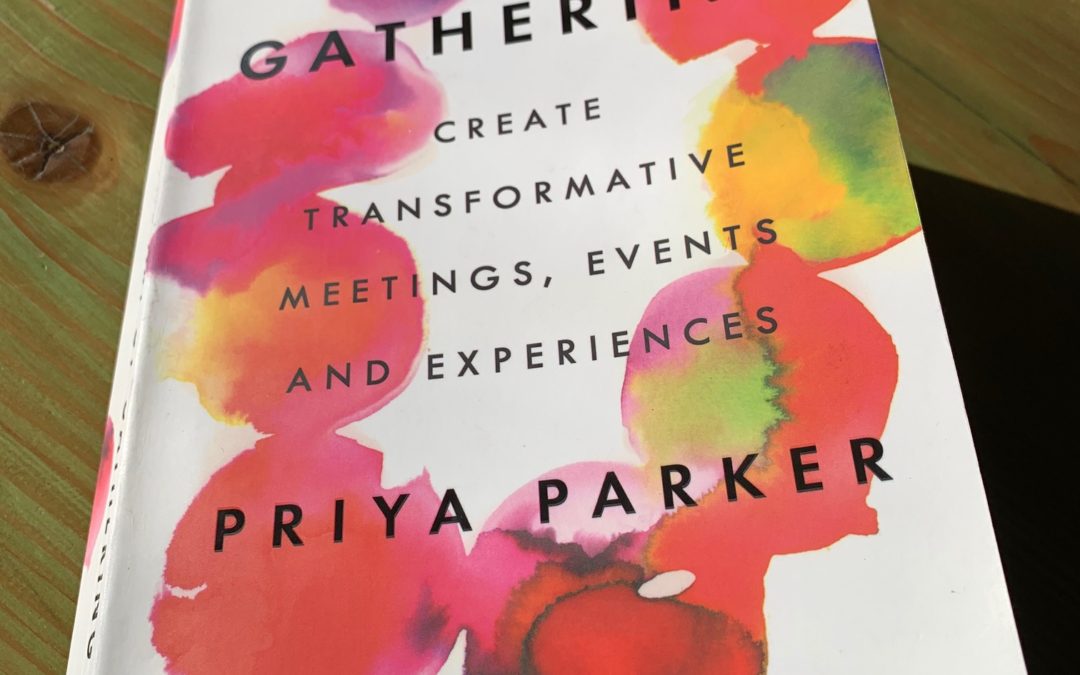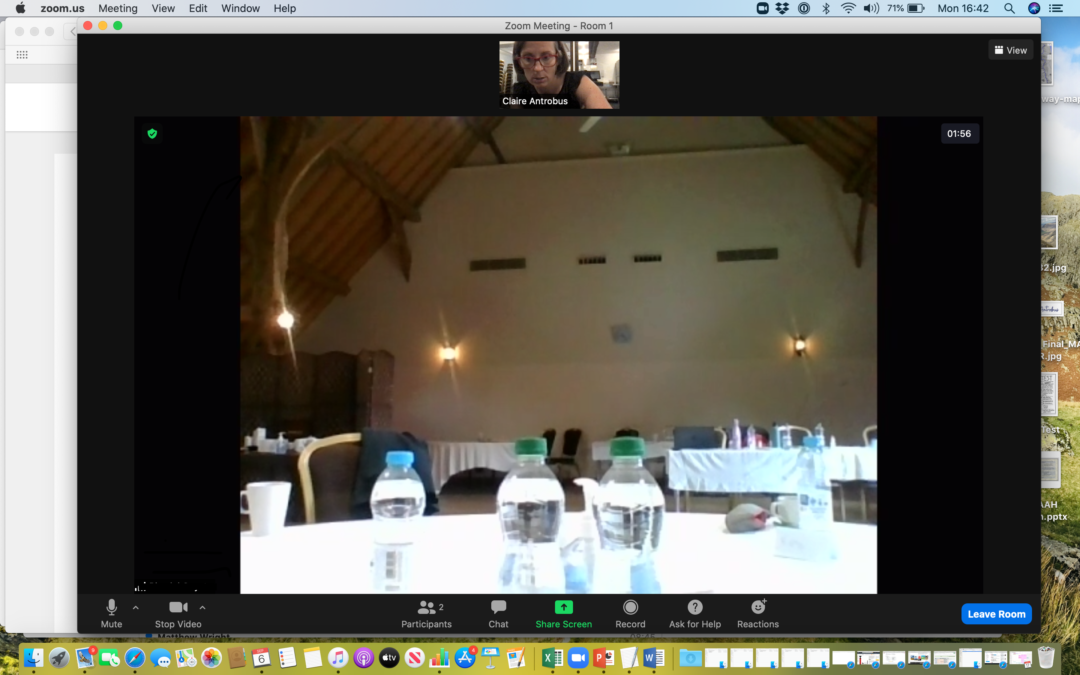
by clairesan | Nov 23, 2021 | Blog, Facilitation, Services, Training, Uncategorized
Virtual Action Learning offers a cost and time effective way to develop your skills and improve your impact at work. In Action Learning, a small group of peers come together regularly, for a finite period of time initially, to support one another to work through their work challenges and reflect on their learning. Using simple group coaching techniques, Action Learning enables fresh thinking and builds confidence.
When recent studies have shown reflective practice – at the heart of Action Learning – can improve performance by 23%, the real question is how can you afford not to do it?
No previous experience is necessary – in our first session we’ll cover what Action Learning is, how it works and you’ll have an opportunity to try it out and meet the rest of the group.
Participants will be asked to sign up to the principles of action learning, which include working in a non-judgmental, supportive and confidential learning space, and to attend a minimum of five of the six sessions. In return we offer you:
- A three-hour introductory training session covering the foundations of Action Learning and opportunity to practice the core skills of active listening and open questions.
- A PDF Action Learning handbook to support you during and beyond the sessions.
- Five 2hr follow-on monthly Action Learning sessions via Zoom.
- Support from a highly experienced Action Learning facilitator/ trainer, including advice and resources about how to set up your own set after this series.
- Access to a regular safe and creative space to think through your own challenges in a reflective and solutions-focussed way
- Opportunity to practice and develop your reflective learning techniques and coaching skills to improve your own and others’ performance
- A supportive community of practice working together over a six-month period
- Pay What You Can rate for anyone earning less than UK average wage (or self-employed equivalent).
If, after the first session, you decide Action Learning is not for you then you are under no obligation to continue and will just be charged £25 for the intro session.
By the end of the sixth session the group can decide to complete its work together – or may choose to carry on independently, self-facilitating using the skills and experience you will have developed.
Previous sets have included people with a wide range of experience from across the cultural and wider non-profit sector including self-employed coaches, creative consultants and producers and those working inside organisations in a variety of roles.
The workshop will be facilitated by me – Claire Antrobus. I’ve been involved with Action Learning as a trained facilitator and participant for over a decade.
“Action Learning really is a gift – when work and life become chaotic, difficult or disrupted – having structured support, time and space to reflect and share, warmth and connections has made a significant difference. It has really developed my active listening skills and given my working practices a reboot. I’ve created new and lasting connections and I’ve learned so much from the other people in the group.” [current set member]
Practicalities
Intro session: 2-5pm Wednesday 26 January
Set meeting dates: 3-5pm on Tuesdays 1 March; 5 April; 3 May; 7 June & 5 July
Cost: £175 (or PWYC for those on less than UK average wage or self-employed equivalent)
To book your place or discuss whether this is for you please contact Claire directly.

by clairesan | Oct 19, 2021 | Blog, Facilitation
For a while I’ve had this book sitting on my ever-growing ‘to read’ pile, and earlier this week I finally picked it up and – my goodness – am I glad I did!
In the way I recommend Nancy’s Kline’s ‘Time to Think’ as the most inspiring, simple and practical read for those wanting to understand coaching; ‘The Art of Gathering’ has that status of ‘if you read one book about…’ for facilitators or people organising public events.
Priya Parker’s book is a deceptively simple set of principles about how to create effective meetings or ‘gatherings’. It’s the kind of simple I like: a master practitioner takes a complex topic and breaks it down into the core principles – richly illustrated with great examples. These principles apply as much to work meetings or conferences as they do to artistic and public events, or social and family gatherings. Proving this point, Parker’s book draws on examples ranging from high level diplomatic conferences, to social events, theatre performances and stag dos.
I’d highly recommend reading the entire book itself. It only took me two long train journeys (about 6 hours) to read cover to cover; so there’s no excuse not to read the original. But to whet your appetite here is a quick précis of the headlines– set out under some of the key pieces of advice which each form a chapter:
Decide why you’re really gathering
The first question we need to answer when designing a meeting or event is why? What do you hope to achieve? Why are you meeting now? What’s your purpose – what do you want to be different as a result of the meeting/ event? Is it about making decisions, generating ideas, creating better trust between people?
The answer to this question needs to be as specific and as exciting as possible. Ideally we need to start with an ExACT coaching-style goal – so help yourself to my ExACT worksheet folks, if that’s helpful.
The clearer and more compelling the answer – the better.
In a later chapter Parker drills deeper into creating compelling events (‘Cause good controversy’) with tips about how best to surface the conversations that need to happen. The bottom-line is this takes time before an event. This reminds me we need to resource that preparation and make time for it, rather than expecting the magic to happen just on the day itself. I think clients and facilitators alike can underestimate this.
And as Parker says a meeting ‘category’ – such as Board awayday, team meeting, networking event – is not a purpose. You need to dig deeper – what’s the desired outcome of that Board awayday? Keep asking why until you get to the heart of the matter.
Purpose must come first and inform every decision about form that follows.
Close doors
If you say you’re for ‘everyone’ or ‘anyone’ there is a serious risk you’re end up serving no-one well. Being clear about who needs to be involved, or who and event is for, means deciding who it is not for, including who might inhibit others or get in the way.
Practically, there are limits to how many people can be involved in conversations. Parker suggests this is around 12-15, and fewer still for difficult conversations or decision-making.
‘Closing the doors’ is also about creating boundaries – making a space feel safe so that we can be honest, take risks etc.
I’m going to quote from her directly here because I found what she says about defining who the event is for deeply resonated with some of the conversations I witness around purpose and audience strategy in cultural organisations:
‘… when you don’t root your gathering up front in a clear, agreed-on purpose, you are often forced to do so belatedly by questions of membership that often arise. This is what happened in [EXAMPLE] We didn’t think about what it was for until we found ourselves in an argument about who it was for. To be clear, I don’t recommend backing into purpose through the question of whom to invite. But the link between the two issues illustrates that the purpose of the gathering can remain somewhat vague and abstract until it is clarified by drawing the boundary about who is in and out. When you exclude, the rubber of purpose hits the road.’
Time and again I see cultural organisations internally debating the ‘who’. What this quote highlights for me is that this is really an indicator that there’s confusion around purpose that’s showing up when we get to the question of the guest list….
The other critical question about metaphorical ‘doors’ is location or venue. When I’m invited in to facilitate a venue has already been chosen, often on grounds of convenience or cost, and I find myself trying to salvage a way to make the space work for the purpose of the event, rather than hindering it.
Logistics and cost need to be considered, but choice of space can be a powerful enabler of a successful meeting or event. The venue should align with and enable the purpose – for example, if you want people to think differently and work in new ways that less likely to happen if you call them in to meet around the table they normally sit around for day-to-day business….
Don’t be a chill host
As the host – the person responsible for bring people together – you have power and responsibility. What are those responsibilities? Parker suggests a good host will:
- Connect guests or participants with one another
- Equalize guests or participants
- Protect your guests (including, from one another – imagine the garrulous Uncle pinning someone in the corner at a family wedding with his dull anecdotes)
Parker notes hosts sometimes abdicate that power through a mis-placed sense of modesty. But when we abdicate our power as hosts you don’t eradicate power – we create a vacuum that causes anxiety and confusion, or worst still allows someone else to take that power and that rarely serves the whole group. Instead a host needs to be comfortable with ‘generous authority’: the strong, confident hand that imposes rules on behalf of others.
Create a temporary alternative world
This chapter is full of fantastic examples of how temporary rules for a meeting or event can encourage different behaviours. Inviting playful and imaginative behaviour can create memorable and useful meetings and events, although it is important participants know what to expect before they arrive. Therefore, part of the role of the invitation is to prime the guests so they understand what they’re signing up to by coming along.
There’s a whole chapter about how we can encourage the authenticity needed to have productive conversations (‘Keep your best self out of my gathering’) packed with various examples ways to enable this.
The other very helpful distinction Parker makes in this section is about assumed and explicit norms of behaviour. When we don’t make our expectations about how to behave in a group explicit we are excluding others, especially those who might have different background of experience to the majority. By contrast when we spell out (and agree) how we want to behave then we enable equal participation.
Never start a funeral with logistics (and Accept that there is an end)
The start and end have more impact than any other part of a meeting or event. Yet Parker notices how often we miss an opportunity to set the tone or engage participants by starting with a logistics announcement (‘before we start, in the event of a fire….’ Or ‘We would like to thank our sponsors…’). Why not start with a bang?
She also reminds us that an event actually starts the minute participants hear of it – usually some time before they arrive in the room. It starts when the meeting request email is received for a team building event or the papers are sent out for a Board meeting.
The mindset or mood in which participants arrive has a huge impact – for good or ill – on the event. Yes, a skilled facilitator can warm things up, but this then takes time which eats into the meeting or event; how much better people arrive ready and excited to contribute?
Therefore Parker advises us not to miss that opportunity to ‘prime’ the participants, suggesting 90% of what makes a great event is put in place beforehand. This can be a simple ‘pre-game’ such as answering a few questions in advance or bringing along a small object as a talking point linked to the theme of the day. For events with high stakes or a need to shift the prevailing dynamic then Parker often uses a structured pre-event dinner designed to connect participants as people and enable them to be vulnerable and honest with one another.
There are some brilliant examples in this section about how to prime and start events with a swing from naming, pre-games and use of metaphorical passageways.
Similarly she advises not to allow events to fizzle out – clear structured ending that allow processing of what has happened and preparation for follow-up after the event need to be carefully planned.
What I love about this book is that it has helped me understand better what enables some events or meetings to really connect and reminded me of some pitfalls to avoid as a facilitator. It also provides examples of some very creative and simple formats or activities that can be used in a variety of contexts for meetings and events.

by clairesan | Sep 8, 2021 | Blog, Facilitation
Earlier this week I helped facilitate remote participation for a week-long course running face-to-face for the first time since March 2020. We didn’t actually need to action the plans we had prepared, but given many of us are preparing to offer hybrid events I thought it might be helpful to share our learning from the preparation we did.
I’m not an expert on the kit or technology involved, so these are going to be the reflections of a facilitator. Many of us are on a steep learning curve with the technological options and how to make them work well both in terms of hardware (microphones, cameras, devices) and software (Zoom, Mentimeter, Miro, Google Jam Boards etc etc). What I do know is having access to technical expertise is crucial, as is testing whatever equipment and software you plan to use so you feel confident about how it works and what it can (and can’t) do. So I did spend a slightly surreal hour or so sitting in a service kitchen pretending to be a remote participant so we could test microphones and Zoom configurations for the various scenarios we wanted to prepare for (as you can see in the picture above).
So what did we learn about facilitating hybrid events?
- Prepare well but expect glitches. Not everything can be rehearsed and not everything will work first time so it’s likely you might feel a bit nervous. Nerves don’t help, and so better we all accept things are unlikely to be perfect at the start. We invited the group to embrace this ethos and remember we were doing our best but this was new and we might not get it right first time.
- Test what it is possible to test. Practice and testing in situ was useful for building our confidence and ironing out glitches. Until we were in the space it was really hard to envisage exactly how we would do things. So making time to rehearse in the space we were using with the actual AV set up was critical for flushing out issues (like sound quality or microphone feedback).
- Check remote and access options integrate. If you have transcription services or induction loops etc in the session then it’s important to think through and test that these integrate with the remote technology and set up.
- Be clear what any contributors have planned. Will they need a Q&A section, do they want people to work in small groups and report back, are there are activities involving visuals or movement? Ideally ask your contributors for a schedule in advance that clearly indicates the format for their contribution. Hybrid events are probably new for them too and they might welcome some guidance (and support in real time) from facilitators about structuring their sessions to work well in a hybrid space. For those presenting online with an IRL audience they also need the facilitators to be their ‘eyes and ears’ in the room, so you need to communicate well.
- Plan for different potential scenarios and formats. We developed a table of possible scenarios and facilitation formats; e.g. 1) Q&Q with presenter remote, participants present; 2) several participants remote for small-group exercise. I expect we will refine and add to this resource as our experience develops.
- Have a back-up plan in case things don’t work. Sometimes there is an ideal solution (eg each remote participant joins a different break out group). But sometimes a simpler, less ideal, solution might be needed as a back up, for example all remote participants work in a small group together. Personally if I’ve not tried something before I like to have a trusted low-tech back up plan in my back pocket just in case…
- Keep it flexible and focus on one section at a time. For a multiday event we had a draft plan for the week but didn’t spend time preparing the whole week in detail. We took it a day at a time as we knew things would likely change at the last moment. Allowing time in the programme to adapt the set up if needed was helpful too. This did mean some very long days though…. so…
- Bring in extra capacity. My client brought me in as a dedicated remote facilitator, to work alongside the core facilitator team, and also invested in dedicated technical expertise to set up and operate the cameras and microphones. Chatting to my fellow facilitators we reckoned that once we’d run it through once in future a two-person facilitation team could absorb online and IRL facilitation between them. But having an extra pair of hands (and head to think the options through) made life a lot less stressful for a first-time running a hybrid event.
Having been a bit unclear initially about how well hybrid events could work now I’ve actually set one up and worked through the options for real it now feels much more possible.
However to do it well will cost more in the short-term, (in terms of technical set up and support) and is a new skillset for a facilitator to acquire; just as we’ve had to learn how to work online over the past 18 months.

by clairesan | Sep 7, 2021 | Blog, Facilitation, Training
Can’t wait to be back in the room with others at conferences and training events? Or are you hoping the professional events that have been moved online in the past 18 months will continue online?
Currently, due to the uncertainty of the pandemic, event organisers are having to make the difficult call whether to risk planning conferences and workshops ‘in real life’ (IRL). Some are experimenting with blended IRL/ online events – I’ve just been involved in one of these so more on than later.
But even when the pandemic is over, I doubt we will ever go back to all professional events and courses happening online.
Online events are often quicker and easier to organise and more accessible. The financial, time and environment costs are usually lower. So why would we consider going back to IRL courses, when can we justify the cost and when will IRL formats better achieve our objectives?
Safety questions aside, I’ve been having lots of conversations recently with clients and fellow facilitators about when it’s best to work together IRL and when online is a better option.
Below I’ve jotted down a few suggestions about what works well online and what I’ve found works better IRL:
When would you ideally do things f2f?
- Early in relationships or projects. If there are new members of a team then the informal opportunities afforded by IRL can support the ‘getting to know you’ stage.
- Peer-learning and networking: when making new or deepening existing connections is important then the informal spaces of IRL events are hard to recreate online.
- Sensitive or personal topics: training sessions which involve developing self-awareness or sharing of personal stories. When participants need to feel high levels of trust in the group and psychological safety then IRL spaces can be more productive.
- ‘Tricky’ situations: if participants might not be very enthusiastic (ie mandatory training) or have reservations about the event. Being physically in the room together enables trainers/ facilitators to better observe body language as well as affording opportunities for more informal 1-2-1 engagement.
When can online work particularly well?
- Shorter courses: the ‘cost’ of travelling to a half-day session makes less sense than travelling to longer sessions. Content which can be delivered in 2-3 hours works really well online, assuming it is well designed.
- Regular sessions: if a group already works regularly together then it can be easy to work well online. A board of Trustees might consider having its annual strategy awayday IRL but its regular quarterly meetings online, for example.
- Geographically diverse teams/ groups: online sessions have made bringing together teams and ad hoc groups for conversations easy. In the past few months I’ve facilitated a number of events with international participants which would never have been possible IRL.
- Highly structured peer-learning, e.g. Action Learning sets, existing networks. My own long-standing AL set moved seamlessly online in March 2020. Many other AL sets had worked online long before CV19. Working online can keep the time and financial cost of participation low: often the biggest barriers to participation in the past.
- Technical content – some content lends itself better to online delivery than other topics. Technical information, theories, case studies can all work well online.
It’s not black and white. Lots of sessions can work well in either format, but there are definitely some things which are easier to do IRL and others which seem to work equally well if not better online.
These are just my observations – I’d love to hear other perspectives so do get in touch to share your own views and experiences…

by clairesan | Jul 23, 2021 | Blog, Training
Do you want to enable others to perform at their best?
Would you like your team to share a vision and enjoy high levels of commitment and creativity?
Do you wish you had some practical tools and skills to build ambition, support learning and achieve great results?
These two new courses have been designed for you…
Isabel Mortimer and Claire Antrobus are coaches who work with individuals, teams and organisations to enable them to achieve great results, develop people and performance and work collaboratively. We have designed these two one-day courses to offer you the opportunity to explore the coaching tools and skills we think are most helpful in managing individuals and teams.
Our emphasis in on practical, simple and effective tools that can be used immediately in the workplace. Courses are accompanied by a course workbook including background information and further resources.
Isabel is an experienced performance coach, focussed on getting positive results for clients. She specialises in leadership development, cultural change, and enabling positive team dynamics. She works with a portfolio of coaching and leadership programmes and has supported cultural exchange and team development work across a range of high profile organisations. She is a fellow of the prestigious Clore Leadership Programme and is employed by The Clore Leadership Programme to help support fellows in developing as transformational leaders.
Claire helps individuals learn to change via coaching, facilitation and training focused on creating high performance. She has over 25 years’ experience in the creative, education and cultural sectors and currently designs and delivers training on developing teams, creating change and leadership for Clore Leadership Programme, HEY Confident Futures, engage’s Extend leadership programme and Leeds Arts University.
How to be a great manager – 10 March, 9:30-4:30, online
If you want to enable great performance, the ability to create productive working relationships with clear roles, responsibilities and boundaries is key. A great manager believes in your potential and creates opportunities for you to improve and develop, offering feedback and support. Whether you’re new to
line-management or looking to refine how your work with others, this course offers you some practical tools and skills to become the kind of manager you’d love to have yourself!
We’ll help you reflect your strengths and style as a line-manager, to identify what you find challenging, and also share some tools, skills and research that can help you get the best performance from yourself and others. As developing skills takes practice, we’ll also create opportunities to you to connect with others on the course and continue to develop your skills together after our session.
Topics we’ll cover include:
- How to have more productive conversations
- How can we set up working relationship to be more successful
- The art of Active Listening
- The benefits and techniques of different leadership styles
- How to ask great questions
£125 standard price/ £105 early bird – book now to reserve your place.
How to be a great team leader – 31 March, 9:30-4:30, online
We spend most of our time working with others, rather than alone. With the rapid pace of change over the past 18 months, and with many teams increasing working remotely and flexibly, the challenge of creating high performing teams has never been more urgent or important.
Coaching enables us to perform at our best by creating a high trust and high challenge culture, supported by clear goals, high levels of commitment and regular honest reflection and adjustment. This one-day workshop introduces simple practical tools and techniques to enable you to create a coaching-based culture of high performance in your team or organisation.
Topics we’ll cover include:
- What does great team performance look like and what can enable it?
- How to stop getting in the way of your team
- Reviewing and improving your work as a team using reflective practice
- Creating shared vision and plans
- How to set goals that are useful and motivating
- How to make meetings more productive and focused
£125 standard price/ £105 early bird – book now to reserve your place.

by clairesan | May 21, 2021 | Facilitation, Services
Are you looking for a supportive and stretching space to think through your work challenges?
Do you want to make changes in how you work or what you do?
Or maybe you’re keen to develop your coaching skills and experience in a group context?
Or simply curious about Action Learning and want to know how it might be useful to you?
Virtual Action Learning offers a low-cost and time-effective way to develop your skills and improve your impact at work. When recent studies have shown reflective practice – at the heart of Action Learning – can improve performance by 23% the question is really how can you afford not to do it?
I’ve been involved with Action Learning as a trained facilitator and participant for nearly a decade. In my experience Action Learning offers me support, an opportunity to practice coaching and facilitation skills, and a brave space to stretch my thinking. Just as importantly for a self-employed Yorkshire woman juggling work and my family – it’s low cost and a brilliant use of my limited time!
This Autumn I’ll be facilitating a new online Action Learning set, so if you are interested in joining us sign up for one of the taster sessions this Summer to learn the core skills and decide whether it’s for you.
Try it out and learn the basics
In June and July I’m offering two chances to find out more about Action Learning via a three-hour training course and taster session.
We will cover:
- The principles and process of Action Learning
- Core skills of Active Listening and questioning
- Experience of an Action Learning ‘set’
All participants will receive a manual and the opportunity to join a fully-facilitated virtual Action Learning set from September (see below).
Practicalities
When: Wed 30 June 2-5pm or Thu 22 July 2-5pm
Cost: £25
How to book: please contact claire@claireantrobus.com
Group size: Max group size 12, min group size 6
From September 2021
Join your peers for a supportive, challenging, confidential space to learn through working on real challenges.
This facilitated online Action Learning set will be open to up to 10 people and run for five sessions initially. After this the group can decide whether and how it wishes to continue, for example you could continue on a self-facilitated basis or create your own ‘new’ sets with new members.
The ‘set’ will be open to anyone who has attended my ‘Introduction to Action Learning course’ or has some experience of Action Learning or coaching.
Practicalities
There will be five sessions between September and January.
Dates: Participants need to be able to commit to at least 4 of the following dates:
Wed 8 Sep 3-5pm
Wed 6 Oct 3-5pm
Wed 3 Nov 3-5pm
Wed 1 Dec 3-5pm
Wed 5 Jan 3-5pm
Cost: Payment £115 in advance for the series of 5, or £25 after each session. Minimum commitment 4 sessions.
Group size: Maximum group size 10, minimum group size 6.
Booking and queries: please contact claire@claireantrobus.com 07913 604678




Recent Comments